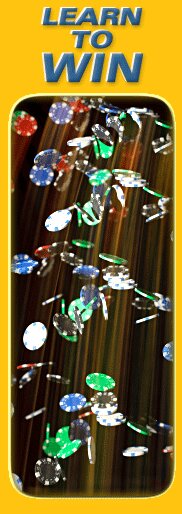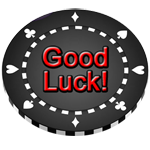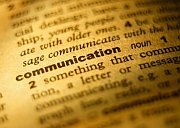Poker Players: How to Beat The Bad Ones
by Bill Burton
There will always be Bad Poker Players, but we can learn how to beat them at this How to Play Poker lesson.
As poker continues to grow in popularity, the casino card rooms and internet poker sites have seen the influx of new players who want to give poker a try.
Most of these new players have little or no knowledge of the game other than the basic rules.
Many of them have gotten all of their education from watching the tournaments on TV.
Two Types of Poker Players
Some of these poker players with their TV education sit down in a Low Limit game and play the way the have seen players play the final table of a televised No Limit tournament.
They think that they can win a low limit game by bluffing and raising and they play like maniacs. They are really easy to spot. The other type of players is a meeker type.
They are weak passive players who will sit down in a game and play a lot of hands but rarely raise or fold.
Both the maniac and the passive players have something in common. They don’t know how to play the game properly. They rarely have any concept of starting hand requirements, pot odds or even how to read the board. Some of them will use the any two will do strategy while others will wait for two suited cards.
Many of the new players think that a single ace is the Holy Grail and constitutes a raise every time they have one. They will cold call raises with hopeless hands and chase all the way to the river looking for a miracle card.
The number of new poker players has actually been a double edge sword for the knowledgeable player. Bad players are profitable for good players. In low limit games, you will make more money from your opponent’s mistakes than you will from your own fancy play.
This is because most of the new players are only interested in their own cards. Few of them even notice what type of hands the other players are playing.
Strategy for Bad Poker Players
In the long run, a good player will beat the new clueless players; however, with all these new players in the game you will also suffer more bad beats than you would in a game full of skilled players.
This has frustrated many veteran players. In the last few months, I have received numerous e-mails from players who have been used to winning and now all of a sudden find that they are getting clobbered by the new players in low limit games.
They are angry that the damn new players don’t know how to play the game. They want to know what to do about it. Some of these players have even told me they have had heated arguments with the newbie players.
I have witnessed this at the tables where I play. I saw an argument break out that thought was going to turn into a physical altercation. A player with pocket aces flopped a set and lost to a straight by a player who cold called a raise with 2-5 off suit. The veteran player started screaming obscenities at the new player who started yelling back that he had the right to play whatever cards he wanted to.
The dealer finally got the players settled down but the player who suffered the bad beat continued making snide remarks about the new player. A few minutes later, the new player who had been donating money to the table got up and left the game. This is exactly what you don’t want to happen.
Don’t Educate Them
Bad players are overall losers. You don’t want to educate them at the table and you definitely don’t want to chase them away.
There is a wealth of books, software and other information available to a player who wants to learn to play the game properly. If a new player wants to get his education by playing at the table in a live game, you should make sure that he pays for this education by the money he will lose chasing down hopeless hands.
Why would you want to give this player any free advice that he can use to beat you with in the future. When a player gets lucky and wins a bit pot you should tell him “nice hand” and encourage him to continue to play that way.
Sure, it hurts when you are on the receiving end of a bad beat but a good player knows how to control his emotions and not let it affect future hands. Avoid making any derogatory remakes aimed at the new player.
If you are really upset, get up and leave the able until you calm down. When you get angry, you are one step closer to going on tilt that can be devastating for you and your bankroll.
Adjust Your Strategy
When you are playing in a game filled with new poker players you will need to make some adjustments to your strategy. You need to adjust your play based on the players in your game at the moment.
If you are in a game with a lot of aggressive players, you will want to tighten up from early position. If you are in a passive game with a lot of loose poker players, you will want to play a few more hands. In a game with a lot of callers, you will win fewer pots but you will win more money in the pots that you do win.
It is up to you to learn how to adjust your strategy to play and win against the new players.
Here are a few tips to help you in these types of games:
Play aggressively from early position with the big pairs but realize that they won’t hold up as often. Pocket Aces will win the majority of times against a small field but will only hold up about 35 percent of the time against a full table of calling stations.
Don’t try slow play or try to get fancy. Bet the best hand if you have it. The straight forward approach is usually the best as there are plenty of players who will call you. Make them pay.
Why give them a free card if you don’t have to.
Don’t try to bluff. If you are in the game with even one calling station, you shouldn’t try to bluff. You will be called by some player who wants to keep you honest.
Play more connectors from late position. In a game with many poker players in the pot, your drawing hands go up in value. You will be getting correct odds to see the flop with these hands and when you do hit, you will be rewarded with a good-sized pot.
Poker Players is followed by Poker Bad Beats
OR
How to Play Poker 1 Program
OR
Learn Poker Games 2 with 7 Game Types
Gambling Teachers Home
GT is attentive about getting the word out about our free programs, lessons and add-ons offered, however, we ask your assistance and consideration in promoting us.
Click link below that reads, "Enjoy this page? Please pay it forward. Here's how..." to add a link to your site, blog or personal page.
Tips, Terms & Wins
Pusoy Poker or Chinese Poker
This version is based on the game of Pai Gow Poker and played mainly in Asia and the Philippines; however, many international casinos now offer the game.
The attraction is that unlike Pai Gow poker, which seems to have endless ties and no winner, Pusoy offers a payout for each hand.
The attraction is that unlike Pai Gow poker, which seems to have endless ties and no winner, Pusoy offers a payout for each hand.





